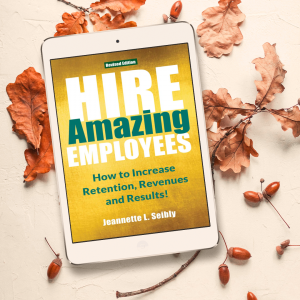
Note: This is a reprint of the #1 article for 2022.
We’ve all been coachable and uncoachable. It’s part of being human.
Being coachable: You listen for feedback from people regardless of your feelings about them.
Being uncoachable and challenging to work with: You refuse to listen to others even when they are great results-producers.
Why are you uncoachable? It could be your:
- Readiness to hear feedback or advice
- Humiliation of what occurred (e.g., poorly done presentation)
- Low self-esteem or ego
- Workplace environment views coaching negatively
- Need to do it your way or on your own
Regardless of your reasoning, developing your listening skills and being coachable is critical.
The bottom line is that every successful leader, boss, and high-performance person has a coach! Think of the NBA, business leaders, and sales teams with excellent sales results. They know that while the advice and feedback may not be delivered flawlessly to their liking, it’s important to be coachable. Setting aside their ego avoids costly errors, team conflict, and poor customer results.
How Do You Improve Being Coachable and Achieve the Success You Really Want?
Be Present and Make the Time. “Is it an appropriate time to talk?” For example, bosses may call you when your kids demand your attention, or you’re in a department store. When this happens, ask, “Can I call you back in ½ hour when I can hear you?” Then, make the call in ½ an hour! Why? When distracted, you cannot present what is being said and will overlook critical feedback details.
Listen to Feedback About You. Listen carefully when the feedback originates from a team member, customer, or executive. There is an important lesson to learn here. To be coachable, listen without defending your actions, words, or thoughts about the person who complained. Instead, a couple of questions to ask: “Can you be more specific?” and “What would you recommend that I do?”
Transform Your Mindset When You Make Mistakes. There will be days you don’t do your best, create team conflict, or say the wrong thing. When someone complains, your ego will feel the need to defend your actions and blame others for the results. Breathe! Apologize! Stick with the facts, not your feelings about the person, situation, or other factors. Instead, ask, “What can I specifically do to change the outcome?” Remember, your future career options require taking responsibility and being coachable!
Review All Project Results Before, During, and After. Too often, you’re open and ready to hear feedback when a project is working. But when a project has or is about to fail, you become defensive, stop listening, and turn it into a debate. Remember, there is always room for improvement. In preparation for these crucial conversations, complete this exercise: “What Worked?/What Didn’t Work?”
Seek Out Coaching When You Need Clarity. There is a myth that you need to know the answer before asking for help. It’s not true! Instead, be open to listening to the feedback and be coachable. For example, ask, “Do you have 5 minutes? I’m unclear on what I need to do to make this project work?” Share the specifics about the goal and actions taken. Always say, “Thank you.” Even when you don’t like their answers be coachable. It could make the difference between successful results and failure.
Listen for the Gold … especially when the little voice in your head is chirping, “I don’t want or need to hear it.” It takes practice to master the skill of being coachable. In turn, you will accelerate your leadership development, relationships, and business results.
©Jeannette Seibly 2022 All Rights Reserved
 Jeannette Seibly is The Leadership Results Coach. She’s celebrating 30 years as an award-winning international executive consultant, speaker, and coach. Her clients value the listening and positive difference she brings to any conversation. Feel stuck in a sticky situation or in challenging relationships? Want straightforward counsel to blast through it? Contact Jeannette for a confidential discussion. PS: She’s also a three-time Amazon Best-Selling Author!
Jeannette Seibly is The Leadership Results Coach. She’s celebrating 30 years as an award-winning international executive consultant, speaker, and coach. Her clients value the listening and positive difference she brings to any conversation. Feel stuck in a sticky situation or in challenging relationships? Want straightforward counsel to blast through it? Contact Jeannette for a confidential discussion. PS: She’s also a three-time Amazon Best-Selling Author!
A Note from Jeannette about being coachable: Successful leaders have coaches. Being coachable isn’t hard if you’re open to feedback and asking for help. Start with your coach to resolve a challenging situation or relationship today. These issues rarely disappear on their own! Do you feel stuck? Not clear what the real problem is? You’re not alone. Contact me for a confidential conversation.
When was the last time you got honest about your leadership issues? Many employees today do not trust their bosses and leaders. Many leaders believe they already understand their blind spots. But they fail to get objective data to help them do the right things correctly. It’s essential to get actual objective data to improve your leadership. Click here for details.





 Jeannette Seibly is The Leadership Results Coach. She’s celebrating 30 years as an award-winning international executive consultant, speaker, and coach. Her clients value the listening and positive difference she brings to any conversation. Feel stuck in a sticky situation or in challenging relationships? Want straightforward counsel to blast through it?
Jeannette Seibly is The Leadership Results Coach. She’s celebrating 30 years as an award-winning international executive consultant, speaker, and coach. Her clients value the listening and positive difference she brings to any conversation. Feel stuck in a sticky situation or in challenging relationships? Want straightforward counsel to blast through it?  Leaders need to stretch themselves beyond their perceived limitations for professional growth. It starts with distinguishing your blind spots:
Leaders need to stretch themselves beyond their perceived limitations for professional growth. It starts with distinguishing your blind spots: 
 Hiring the wrong person for an executive or critical position jeopardizes your company. However, this can be preventable when using a strategic selection system. Get essential hiring and selection tips by grabbing the Amazon International Best-Selling Book,
Hiring the wrong person for an executive or critical position jeopardizes your company. However, this can be preventable when using a strategic selection system. Get essential hiring and selection tips by grabbing the Amazon International Best-Selling Book, 
 Jeannette Seibly is The Leadership Results Coach. She has been an award-winning international executive and family business management consultant, keynote speaker, and author for over 29 years. Her focus is to guide leaders to make a positive difference. Feel stuck moving your team forward? Want straightforward counsel on how to do it? Let’s chat!
Jeannette Seibly is The Leadership Results Coach. She has been an award-winning international executive and family business management consultant, keynote speaker, and author for over 29 years. Her focus is to guide leaders to make a positive difference. Feel stuck moving your team forward? Want straightforward counsel on how to do it? Let’s chat! 

